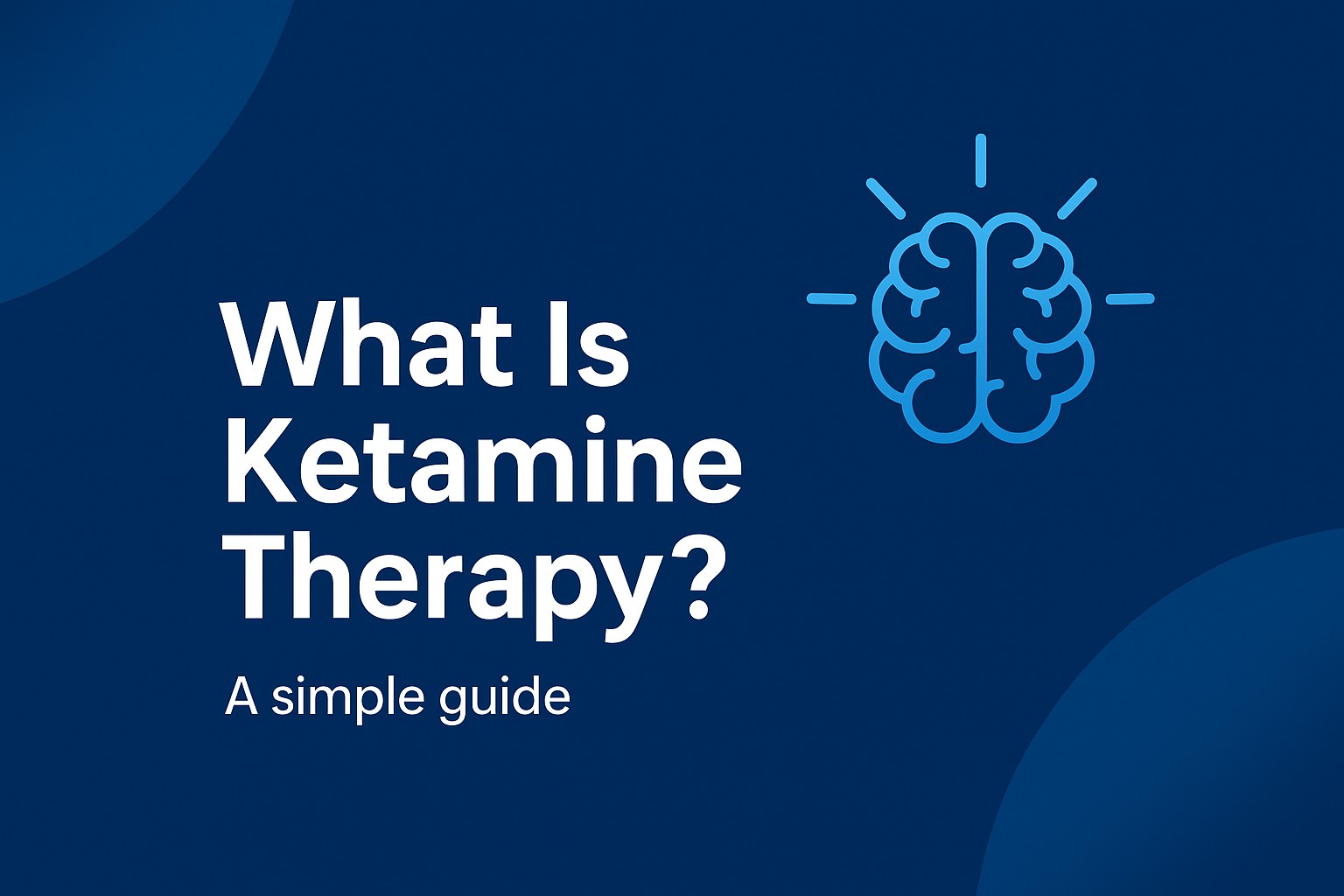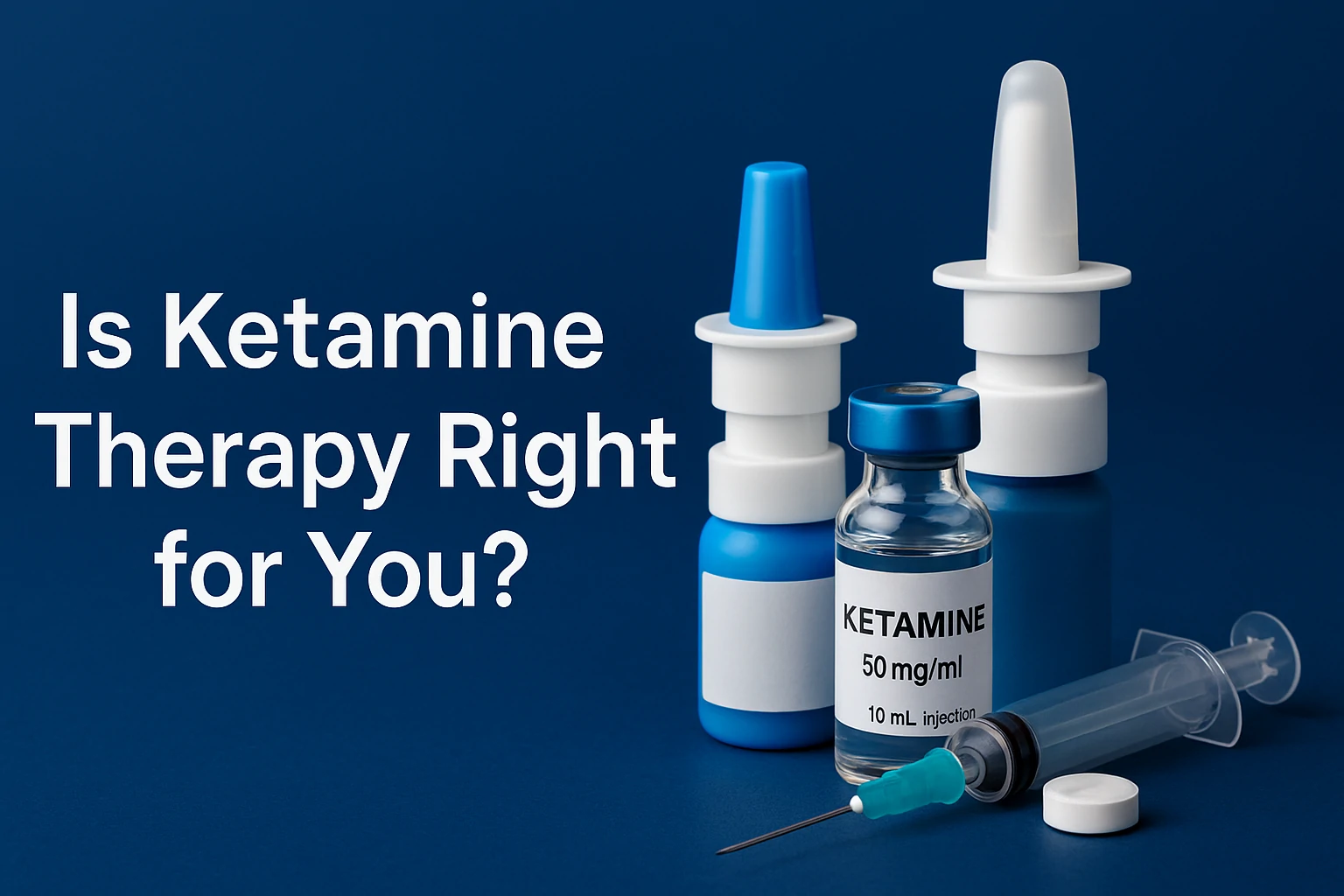Ketamine started as a hospital drug. Doctors used it to block pain or put patients to sleep before surgery. That was its only purpose for years. Now, doctors use it in a different way.
Some clinics in the U.S. offer ketamine as a treatment for mental health issues. They say it brings quick relief. Some people say it works when nothing else helps. Others worry about risks, side effects, and long-term harm. This new use brings both hope and caution.
You may not know what to believe. Some sites call it a breakthrough. Others warn against it. You need real facts to make a smart choice.
This article explains ketamine therapy in simple terms. It covers how it works, who it may help, and what risks to consider. Use this guide to protect your health and make the right decision.
What Is Ketamine Therapy?
Ketamine is a drug that acts on the brain. Doctors first used it to help patients sleep during surgery. It blocks pain and creates a light, dream-like state. This effect also helps people with depression, PTSD, and anxiety. Therapy uses a much smaller dose than surgery.
Doctors give ketamine in small amounts under medical care. You may receive it through an IV, a nose spray, or a tablet that melts under the tongue. Each option works in a different way. Some clinics only use approved forms. Others may use custom-made versions that are not approved.
Sessions happen in a clinic with trained staff. A doctor or nurse stays with you the whole time. You stay awake, but your thoughts may drift. Some people feel calm. Others feel sad or emotional. A session takes 40 to 60 minutes. After that, you rest, then leave once it is safe.
Most people need more than one session. You may visit the clinic several times over a few weeks. The doctor may adjust the dose to fit your needs. Some people come back later for more care. The goal is to reduce deep emotional pain and help you feel stable again.
How Does It Work in the Brain?
Ketamine affects a part of the brain linked to mood and memory. It blocks a chemical called glutamate. This action helps reset nerve paths that may not work right in people with depression. Unlike regular pills that take weeks, ketamine can act within hours.
Scientists believe ketamine opens the brain to new patterns. This may allow better thinking, fewer dark thoughts, and more hope. Some experts say it may “rewire” the brain. This is why it can help when other drugs fail.
The effect is not just chemical. The experience also matters. Many people say the session helps them think in new ways. They feel more at peace or gain insight. This mix of brain change and mental clarity gives ketamine its power.
Care for your mind and your eyes. Read How Diabetes Affects Your Eyes: A Simple Guide to Protecting Your Vision.
Who Doctors Consider Ketamine For
Doctors consider ketamine when other care fails. Most people in this group tried standard drugs or therapy with no relief. Common cases include:
- Major depression
- PTSD (Post-Traumatic Stress Disorder)
- Anxiety disorders
- Bipolar depression in select cases
- Chronic pain conditions
Some clinics offer it for OCD, addiction, or eating issues. These uses are not FDA-approved. Research still continues. Ask your doctor about safety and legal status before you proceed.
People who feel stuck, numb, or without hope may gain the most. Many report fast relief. Some feel a change within hours. That window can help you think clearly and take real steps toward recovery.
Who Should Avoid Ketamine
Ketamine is not right for everyone. Avoid it if you have heart disease or high blood pressure that is not under control. Do not use it if you have a history of psychosis. Do not use it during pregnancy. Liver disease can add risk. People with substance misuse should not take it.
A full medical review is essential before you start. Your doctor should check your health history, medicines, and goals. The doctor should explain the benefits, the risks, and other safe options.
Benefits of Ketamine Therapy
Speed is the main benefit. Most antidepressants need weeks to show results. Ketamine can ease symptoms within hours. Fast relief can save lives in people who feel suicidal. One session may bring calm and clear thinking.
This therapy can help when other care fails. Many people try several drugs with no change. Ketamine gives a new path based on brain science, not only mood control. It can lift heavy symptoms so you can start real progress.
The gains reach beyond mood. Many people feel open, less afraid, and more connected. This makes talk therapy work better. Sessions feel safer. You can speak about trauma and face hard memories with support. Some doctors pair ketamine with guided therapy to build lasting skills.
Pain relief is another benefit. Low doses can reduce pain from nerve damage, injuries, or long-term illness. The drug helps the brain block pain signals. Some clinics use it for migraines, fibromyalgia, or arthritis under strict medical care.
Risks and Side Effects
No treatment is perfect. Ketamine has side effects, especially if used the wrong way. Common effects during a session include:
- Dizziness
- Blurred vision
- Nausea
- Feeling spaced out
- High blood pressure
- Fast heart rate
These effects fade after the session. You must stay at the clinic until it is safe to go home. You should not drive or work right away. Your body and mind need time to recover.
Some people may feel worse before they feel better. They may cry, feel scared, or recall painful events. These moments pass, but they can be hard. A trained team should help you through them.
Long-term use can cause more harm. Daily or frequent doses may hurt the bladder, liver, or brain. Some people lose memory or focus. There is also a risk of addiction. This happens when people take ketamine outside of medical care.
FDA warns against at-home ketamine use. Some websites sell it without full checks. These treatments lack safety steps. They may lead to overdose or mental harm. Always use ketamine under medical care.
Is Ketamine Legal in the U.S.?
Ketamine is legal for medical use in the United States. Doctors use it as an anesthetic. Some also use it to manage pain.
Only one version is approved for mental health. That version is Spravato (PDF). It is a nasal spray made for people with severe depression. You can only get it at a certified clinic. A doctor must stay with you during and after each dose. This rule follows a strict safety plan called REMS.
Other forms of ketamine are not FDA-approved for mental health. These uses are called off-label. A licensed doctor may still offer them. Many treatments in medicine are off-label. But these uses need more care and clear consent.
Ketamine is also a controlled drug. That means it can be abused. Clinics must follow strict safety rules. They must store the drug in secure places and track each dose. They must also protect your health during every visit.
Before you agree to treatment, ask questions:
- Is the clinic licensed and inspected?
- Does the staff have real medical training?
- Will they check your heart rate and blood pressure?
- Do they have emergency tools and a clear safety plan?
- Will they give you written aftercare steps?
Use ketamine only with full medical care. Never buy it online or take it without a doctor present. Safe use protects your body, your mind, and your future.
How to Find a Safe Ketamine Clinic
Start with a trusted doctor. Do not choose places that offer fast results or miracle promises. Real care takes time and skill.
A good clinic will:
- Ask about your full health history
- Explain side effects clearly
- Stay with you during each session
- Offer follow-up support
- Include talk therapy if needed
Ask these questions before you begin:
- Who gives the dose?
- What type of ketamine do you use?
- How many sessions will I need?
- What happens if I feel worse?
- What support do you offer after treatment?
These answers help you stay safe. Choose care that puts your health first. Always check the clinic’s license and staff training before you agree to treatment. Smart choices lead to better results.
Real Stories and What Patients Say
Many people share stories of deep change. Some say ketamine gave them back their life. Others say it gave them space to breathe. A few found peace after years of pain. These voices show what this treatment can do.
At the same time, some people felt nothing. Others had bad reactions. A few quit after one try. This shows that ketamine is not magic. It works for some, not all. The setting, dose, and your health all play a role.
Most Common Questions
1. Is ketamine therapy safe?
It can be safe when a trained doctor gives it in a licensed clinic. Follow all safety rules. Side effects can occur, but they often fade within hours.
2. How long does a session take?
Most sessions last 40 to 60 minutes. You may need to rest after. Staff will keep you until you feel stable.
3. How many sessions will I need?
Most people need a series, not one visit. A common start is six sessions over two to three weeks. Your doctor will set the plan based on your needs and response.
4. Can I take ketamine at home?
No. At-home use is unsafe without medical care. The FDA warns against online or unapproved forms. Get treatment in a clinic with trained staff.
Conclusion
Ketamine therapy offers real hope to people who feel lost. It can lift depression, ease pain, and open new paths. It works fast and gives results that many drugs cannot match. This power makes it a strong tool in modern mental health care.
But every tool has limits. Ketamine is not a fix for everyone. It carries risks that must be faced with care. The best results come with good doctors, clear plans, and full support. Unsafe use can do more harm than good.
If you think about ketamine therapy, do your homework. Ask smart questions. Choose a clinic that values your safety. Talk to a real doctor who knows your history. Make your choice with care, not pressure.
This guide gives you the truth, not hype. Now the next step is yours.





